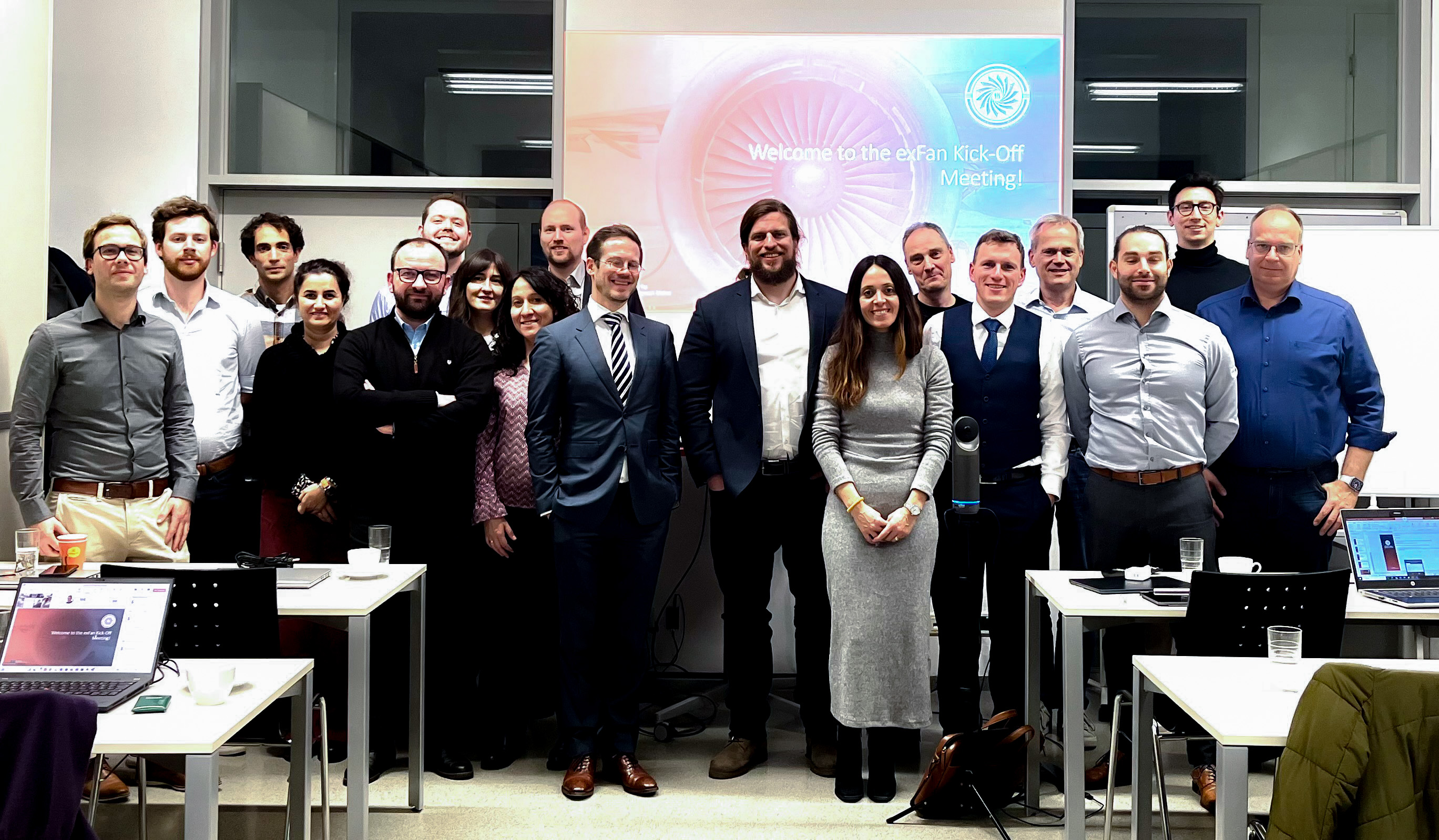The exFan (Novel recuperation system to maximize exergy from anergy for fuel cell powered geared electric aircraft propulsion system) project sets out to transform aircraft propulsion with a pragmatic and eco-friendly approach.
Hydrogen-powered flight boasts zero in-flight CO2 emissions, yet the challenge lies in efficiently managing the heat generated by fuel cells. In response, the exFan project aims not only to dissipate excess heat without compromising speed but also to convert it into additional thrust for enhanced efficiency. This is achieved by the innovative Heat Propulsor: A device that transforms excess heat into thrust using the ramjet effect. The Heat Propulsor will be integrated into a MW-class fuel-cell geared electric propulsion system.
With six main objectives in sight, the project is committed to practical innovation. These include designing a lightweight heat exchanger for MW-class heat rejection (MO1), developing a recuperation device based on the ram jet effect (MO2), and establishing a robust thermal management system that aims to increase heat quality (MO3). System simulations will be a crucial step (MO4) to ensure the viability of these solutions.
Going beyond progress, exFan addresses the broader impact on aircraft operations and the environment (MO5). The project strives to the environmental impact of water vapor emissions through strategic adjustments in operational parameters and handling practices at high altitudes.
In the spirit of collaboration, exFan is dedicated to sharing its discoveries with the Clean Aviation (CA) and Clean Hydrogen (CH) Joint Undertaking (MO6). The project envisions a collective effort towards a more sustainable and efficient era in aviation, emphasizing the significance of shared knowledge and progress for the benefit of all.
The collaborative project involves CIDETEC as the Project Coordinator, Advanced Drivetrain Technologies GmbH as the Technical Coordinator, and Vienna University of Technology as the Research Coordinator. The partnership includes Technical University of Munich, IRES, EGILE, EASN-Technology Innovation Services, Fraunhofer IAPT, German Aerospace Center (DLR), and Power I.D. GmbH.

The journey commenced with the kick-off meeting on December 13 & 14, 2023, held at the prestigious Vienna University of Technology (TUW) in Vienna, Austria, with the participation of the 10 partners representing the aerospace industry, academia, and aeronautical associations.

Funded by the European Union. Views and opinions expressed are however those of the author(s) only and do not necessarily reflect those of the European Union or CINEA. Neither the European Union nor the granting authority can be held responsible for them.
